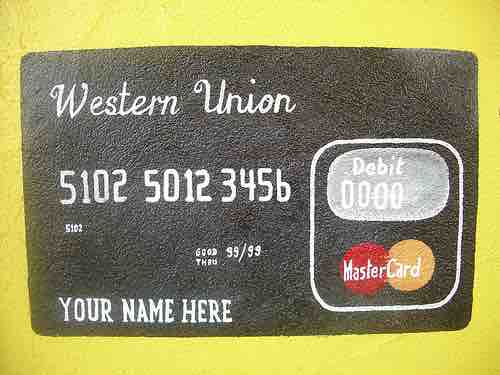Credit Cards
A credit card is a payment card issued to users as a system of payment. It allows the cardholder to pay for goods and services based on the promise to pay for them later and the immediate provision of cash by the card provider. The issuer of the card creates a revolving account and grants a line of credit to the consumer (or the user) from which the user can borrow money for payment to a merchant or as a cash advance to the user. Credit cards allow the consumers a continuing balance of debt, subject to interest being charged. A credit card also differs from a cash card, which can be used like currency by the owner of the card .

Credit card
A credit card is a payment card issued to users as a system of payment.
Credit cards are issued by an issuer like a bank or credit union after an account has been approved by the credit provider, after which cardholders can use it to make purchases at merchants accepting that card.
Benefits to Users
The main benefit to each customer is convenience. Compared to debit cards and checks, a credit card allows small short-term loans to be quickly made to a customer who need not calculate a balance remaining before every transaction, provided the total charges do not exceed the maximum credit line for the card.
Many credit cards offer rewards and benefits packages like enhanced product warranties at no cost, free loss/damage coverage on new purchases and various insurance protections. Credit cards can also offer reward points which may be redeemed for cash, products or airline tickets.
Costs to Users
High interest rates: Low introductory credit card rates are limited to a fixed term, usually between six and 12 months, after which a higher rate is charged. As all credit cards charge fees and interest, some customers become so indebted to their credit card provider that they are driven to bankruptcy. Some credit cards often levy a rate of 20 to 30 percent after a payment is missed. In other cases a fixed charge is levied without change to the interest rate. In some cases universal default may apply - the high default rate is applied to a card in good standing by missing a payment on an unrelated account from the same provider. This can lead to a snowball effect in which the consumer is drowned by unexpectedly high interest rates.
Complex fee structures in the credit card industry limit customers' ability to comparison shop, help ensure that the industry is not price-competitive and help maximize industry profits.
Benefits to Merchants
For merchants, a credit card transaction is often more secure than other forms of payment, because the issuing bank commits to pay the merchant the moment the transaction is authorized regardless of whether the consumer defaults on the credit card payment. In most cases, cards are even more secure than cash, because they discourage theft by the merchant's employees and reduce the amount of cash on the premises. Finally, credit cards reduce the back office expense of processing checks/cash and transporting them to the bank.
Costs to Merchants
Merchants are charged several fees for accepting credit cards. The merchant is usually charged a commission of around one to three percent of the value of each transaction paid for by credit card. The merchant may also pay a variable charge, called an interchange rate, for each transaction. In some instances of very low-value transactions, use of credit cards will significantly reduce the profit margin or cause the merchant to lose money on the transaction. Merchants with very low average transaction prices or very high average transaction prices are more averse to accepting credit cards. Merchants may charge users a "credit card supplement," either a fixed amount or a percentage, for payment by credit card. This practice is prohibited by the credit card contracts in the United States, although the contracts allow the merchants to give discounts for cash payment.
Merchants are also required to lease processing terminals, meaning merchants with low sales volumes may have to commit to long lease terms. For some terminals, merchants may need to subscribe to a separate telephone line. Merchants must also satisfy data security compliance standards which are highly technical and complicated. In many cases, there is a delay of several days before funds are deposited into a merchant's bank account. As credit card fee structures are very complicated, smaller merchants are at a disadvantage to analyze and predict fees. Finally, merchants assume the risk of chargebacks by consumers.